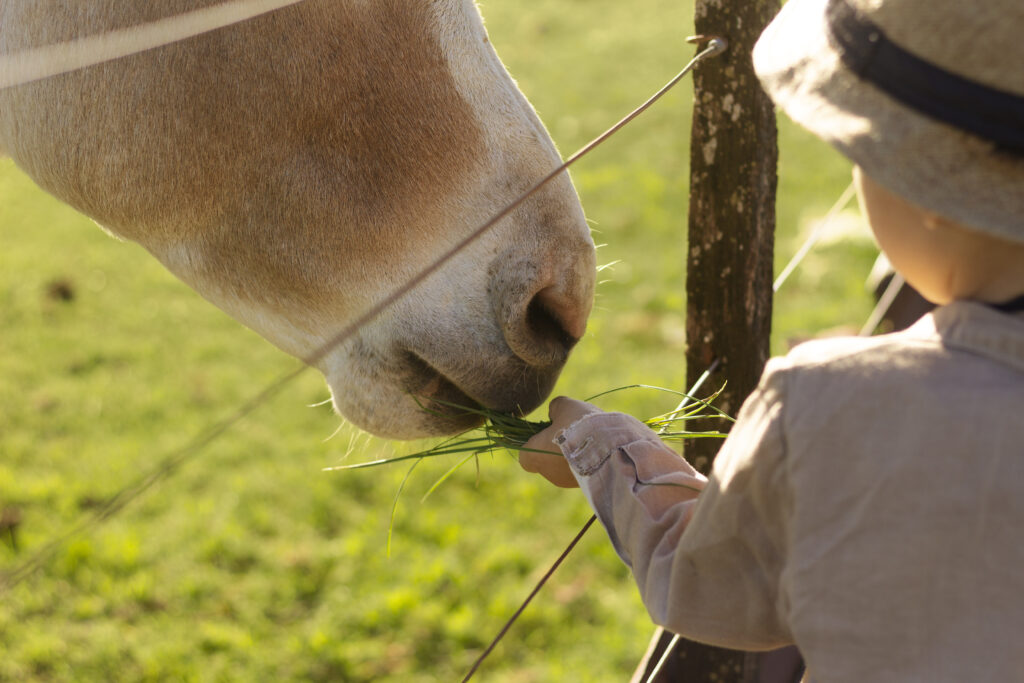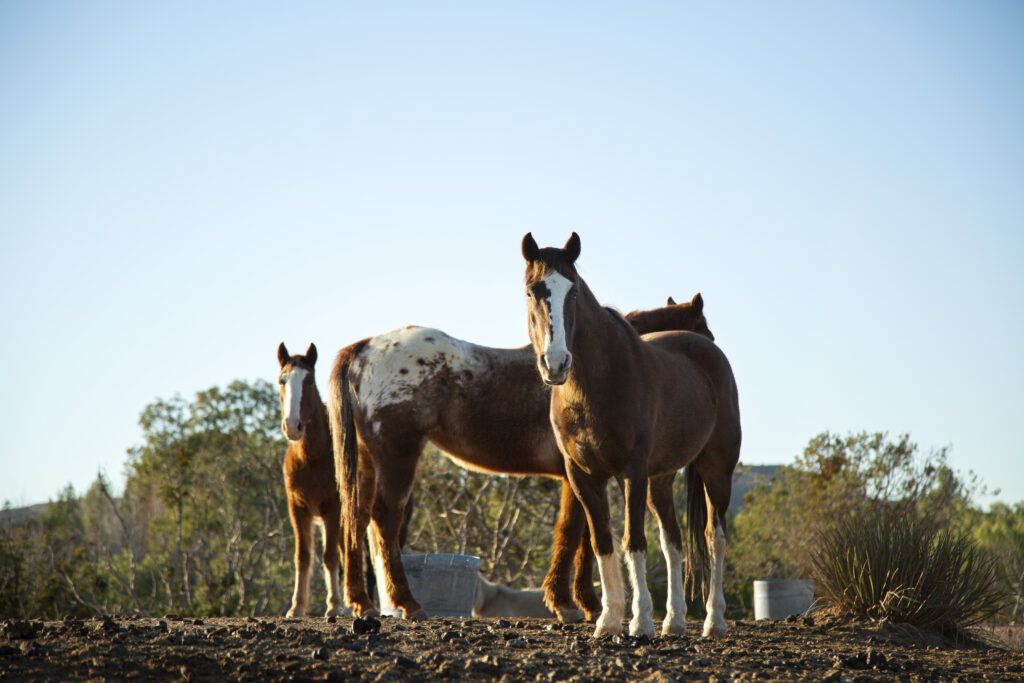Introduction
Maintaining a proper horse deworming schedule is one of the most crucial aspects of equine health management. As a horse owner, you might think you’re doing everything right, but there are common mistakes that could be putting your horse’s health at serious risk. Internal parasites pose a significant threat to horses of all ages, and an improper deworming schedule for horses can lead to resistance, ineffective parasite control, and even life-threatening conditions.
In this comprehensive guide, we’ll explore the top four devastating mistakes horse owners make with their horse deworming schedule and provide actionable advice to help you implement the best horse deworming schedule for your equine companion. These aren’t just minor oversights – they’re serious errors that could potentially be fatal for your horse if left uncorrected.
Whether you’re a seasoned equestrian or a new horse owner, understanding these critical horse worming schedule failures will help you protect your horse’s health and ensure they live a long, parasite-free life. Let’s dive into the most dangerous misconceptions about horse deworming schedules and learn how to avoid them.

Why Your Horse Deworming Schedule Matters
Before we delve into the common mistakes, it’s important to understand why a proper horse deworming schedule is essential. Internal parasites like strongyles, ascarids, tapeworms, and bots can cause:
- Weight loss and poor condition
- Colic and digestive disturbances
- Impaired growth in young horses
- Anemia and weakness
- Reduced performance
- Potential death in severe cases
A well-planned equine deworming schedule is your first line of defense against these harmful parasites. However, many horse owners unknowingly compromise their horse worming program through critical errors that not only fail to protect their horses but may actively contribute to parasite resistance and worsening health issues.
Now, let’s examine the top four horse deworming schedule fails that could be putting your horse’s life at risk.
Fail #1: Following an Outdated Rotational Deworming Schedule
One of the most dangerous mistakes in horse parasite control schedules is blindly following the outdated rotational deworming approach that was popular decades ago.
Why Rotational Deworming Is Failing Your Horse
The traditional rotational deworming horses approach involves administering different classes of dewormers every 6-8 weeks throughout the year, rotating between product types. This method was developed in the 1960s when parasites were more susceptible to dewormers, but times have changed dramatically.
Horse worming schedules based solely on rotation are now considered outdated for several critical reasons:
- Parasite Resistance: Frequent deworming has led to widespread resistance among equine parasites. Some studies show that small strongyles (cyathostomins) now demonstrate up to 98% resistance to certain dewormer classes in some regions.
- Unnecessary Treatment: Not all horses carry the same parasite burden. Research indicates that approximately 20% of horses in a herd harbor 80% of the parasites. Following a rigid horse deworming chart that treats all horses the same wastes medicine and accelerates resistance.
- Ignoring Seasonal Variations: Blindly rotating products doesn’t account for the seasonal life cycles of different parasites, making your horse deworming routine less effective.
The Better Approach to Your Horse Deworming Plan
Instead of sticking to an outdated rotational deworming horses regimen, implement a strategic deworming in horses approach:
- Conduct fecal egg count (FEC) tests 2-4 times yearly to identify your horse’s individual parasite burden
- Work with your veterinarian to develop a customized horse deworming plan based on test results
- Target specific parasites at times when they’re most vulnerable based on their lifecycle
- Consider your local climate and how it affects parasite populations in your seasonal horse deworming plan
Remember that no single horse deworming schedule works for all horses. A customized approach based on scientific testing is now considered the gold standard for effective horse parasite control schedule management.
Fail #2: Ignoring the Critical Role of Fecal Testing in Your Horse Worming Program
Many horse owners completely overlook the importance of fecal testing when developing their horse deworming schedule. This oversight is not only wasteful but potentially dangerous.
Why Flying Blind Is Dangerous
When you implement a horse worming calendar without regular fecal testing, you’re:
- Treating Unnecessarily: You might be deworming a horse that doesn’t have a significant parasite burden, contributing to resistance development.
- Missing Heavy Infestations: Some horses are “high shedders” and need more frequent deworming than a standard horse deworming routine would suggest.
- Using the Wrong Products: Without knowing which specific parasites are affecting your horse, your equine deworming schedule might target the wrong parasites entirely.
- Unable to Evaluate Effectiveness: Without before-and-after testing, you have no way to know if your horse deworming protocol is actually working.
How to Incorporate Testing into Your Horse Deworming Schedule
A modern, effective horse worming schedule should include:
- Baseline fecal egg count tests to determine your horse’s parasite burden
- Classification of your horse as a low, moderate, or high shedder
- Follow-up testing to ensure your horse deworming plan is effective
- Adjustment of your horse deworming chart based on test results
According to the American Association of Equine Practitioners (AAEP), adult horses should undergo fecal egg count testing at least twice yearly, while young horses and those with known parasite issues may need more frequent monitoring to maintain an effective horse parasite control schedule.
Working with your veterinarian on an evidence-based approach to how often to deworm a horse will lead to more effective parasite control and slower development of resistance, protecting your horse’s health in the long run.
Fail #3: Disregarding Seasonal Timing in Your Equine Deworming Schedule
One of the most overlooked aspects of an effective horse deworming schedule is the critical importance of timing your treatments to coincide with parasite life cycles and seasonal patterns. Many horse owners apply a one-size-fits-all approach throughout the year, severely compromising their horse worming program.

The Seasonal Parasite Challenge
Different parasites thrive in different weather conditions, and their lifecycle stages vary throughout the year. A proper seasonal horse deworming strategy takes these factors into account:
- Spring: Small strongyle larvae often emerge from the intestinal wall in late winter and early spring, making this a critical time for targeted deworming in your horse deworming routine.
- Summer: Hot, dry conditions may naturally reduce parasite transmission on pasture, potentially allowing for less intensive treatment in your horse deworming plan.
- Fall: This is a key time to target bots and tapeworms before winter, as part of your comprehensive horse deworming schedule.
- Winter: Freezing conditions in some regions naturally kill many parasite eggs, potentially reducing the need for intensive deworming during cold months in your horse worming schedule.
Crafting a Season-Smart Approach to Horse Deworming
An effective seasonal horse deworming strategy might include:
- Early Spring (March-April): Target small strongyles with appropriate dewormers during this critical emergence period
- Summer (June-August): Adjust your horse deworming chart based on climate and pasture conditions
- Fall (September-November): Include products that target bots and tapeworms in your horse deworming protocol
- Winter (December-February): Adapt your horse worming program to your specific climate and housing conditions
Your local climate significantly impacts which parasites pose the greatest threat at different times of year. What works in Florida for a horse deworming schedule may be completely inappropriate for Montana. Working with a veterinarian familiar with your region will help ensure your equine deworming schedule is appropriately tailored to local conditions.
Remember that a rigid, calendar-based approach that ignores seasonal variations is a significant failure in your horse parasite control schedule that could leave your horse vulnerable precisely when certain parasites are most dangerous.
Fail #4: Using the Same Products Regardless of Age or Situation
Perhaps one of the most dangerous failures in horse deworming schedules is applying the same approach to all horses regardless of age, health status, or environment. This one-size-fits-all mentality can be particularly harmful and even fatal in certain situations.
Why Age and Situation Matter in Your Horse Deworming Plan
Different horses have dramatically different parasite risks and tolerances:
- Foals and Young Horses: Require a completely different deworming schedule for horses than adults due to their vulnerability to ascarids (roundworms), which can cause fatal impactions.
- Senior Horses: Often have compromised immune systems, making an appropriate horse worming schedule even more critical for their health.
- Pregnant Mares: Need special consideration in their horse deworming routine to protect both mare and foal while avoiding certain products during specific stages of pregnancy.
- New Arrivals: Should have a specific quarantine horse deworming protocol to prevent introducing resistant parasites to your property.
Tailoring Your Horse Deworming Schedule to Individual Needs
A properly individualized horse deworming plan considers:
- Age-specific protocols: Foals may need deworming as early as 2-3 months with specific products safe for their age, following a much more intensive horse worming calendar than adult horses.
- Health status: Horses with compromised immune systems, such as those with PPID (Cushing’s disease), may require a more aggressive horse deworming schedule.
- Housing and density: Horses in high-density boarding situations face different parasite challenges than those on spacious pastures, requiring adjustments to their horse deworming routine.
- Travel frequency: Show horses or those who travel frequently encounter more diverse parasite populations and may need a more robust horse parasite control schedule.
By evaluating each horse as an individual rather than applying a blanket horse deworming schedule to your entire herd, you can provide more effective protection while slowing resistance development.
Building the Best Horse Deworming Schedule: A Comprehensive Approach
Now that we’ve identified the four major fails that could be compromising your horse deworming schedule, let’s construct a more effective approach to horse parasite control schedule management that addresses these concerns.
Step 1: Consult with Your Veterinarian
The first step in establishing the best horse deworming schedule is consulting with a veterinarian who:
- Understands your local parasite challenges
- Can perform and interpret fecal egg count tests
- Stays current on the latest recommendations for equine deworming schedules
- Can provide guidance specific to your horses’ ages, health status, and environment
Step 2: Implement Regular Fecal Testing
Incorporate fecal testing as a cornerstone of your horse worming program:
- Conduct baseline testing to classify your horses as low, moderate, or high shedders
- Test 2-4 times yearly depending on your horses’ shedding status
- Schedule follow-up testing after deworming to confirm effectiveness
- Use testing results to refine your horse deworming plan
Step 3: Develop a Seasonal Approach
Create a seasonal horse deworming strategy that:
- Targets specific parasites when they’re most vulnerable based on their lifecycle
- Accounts for your local climate and its effect on parasite populations
- Adjusts treatment frequency based on environmental factors
- Incorporates pasture management into your overall horse parasite control schedule
Step 4: Individualize Treatment
Tailor your horse deworming schedule to each horse’s specific needs:
- Create separate protocols for young, adult, and senior horses
- Adjust frequency and product selection based on fecal egg count results
- Consider health status, pregnancy, and other individual factors
- Develop special protocols for new arrivals
Step 5: Integrate Environmental Management
Combine chemical control with management practices:
- Regular manure removal from pastures and paddocks
- Proper composting to kill parasite eggs
- Rotational grazing when possible
- Avoiding overcrowding
By following these steps, you’ll create a comprehensive horse deworming schedule that avoids the four major fails we’ve discussed and provides superior protection for your equine companions.
Best Practices for Your Horse Deworming Routine
To maximize the effectiveness of your horse deworming schedule, consider these best practices:
Timing Administration Correctly
- Administer dewormers after a brief fast to maximize effectiveness
- Ensure proper dosing based on an accurate weight (use a weight tape if you don’t have access to a scale)
- Follow up with fecal testing to confirm effectiveness of your horse worming program
Product Selection Guidelines
- Understand the different classes of dewormers and their targets
- Use products appropriate for your horse’s age and health status
- Incorporate drugs that target tapeworms and bots at appropriate times in your horse deworming chart
- Save moxidectin and praziquantel products for specific seasonal treatments rather than routine use
Record Keeping Essentials
Maintain detailed records of your horse deworming schedule including:
- Dates of deworming
- Products used
- Fecal egg count results
- Weight at time of treatment
- Any adverse reactions
This information is invaluable for refining your horse worming calendar over time and providing crucial information to veterinarians or new owners if your horse is sold.
Conclusion: Beyond a One-Size-Fits-All Horse Deworming Schedule
Parasite control is a complex and evolving science, and the days of simple rotational horse deworming schedules are long gone. By avoiding the four critical fails we’ve discussed:
- Following outdated rotational protocols
- Ignoring the importance of fecal testing
- Disregarding seasonal timing
- Using the same approach regardless of age or situation
You can develop a modern, evidence-based horse deworming plan that provides superior protection while helping combat the growing problem of parasite resistance.
Remember that the best horse deworming schedule is one that’s tailored to your specific horses, environment, and local parasite challenges. Working closely with your veterinarian to develop and refine your horse worming schedule will ensure your horses receive optimal protection against these dangerous internal parasites.
Don’t let an inadequate horse deworming schedule put your horse’s health at risk. Implement these strategies today to create a more effective equine deworming schedule that will keep your horses healthy and parasite-free for years to come.
Additional Resources for Horse Deworming Schedules
To learn more about creating an effective horse deworming schedule, consult these trusted resources:
- American Association of Equine Practitioners (AAEP) Parasite Control Guidelines
- University of Kentucky College of Agriculture Equine Parasite Control
- PetsPump Horse Care Guides – Our collection of horse care articles
- The Horse: Your Guide to Equine Health Care
- Equine Disease Quarterly – Regular updates on equine health issues
By staying informed and working with equine health professionals, you can ensure your horse deworming schedule remains current, effective, and based on the latest scientific evidence.
Remember, when it comes to parasite control, the goal isn’t just to deworm your horse—it’s to maintain a healthy horse through a comprehensive approach to parasite management that includes proper deworming, environmental control, and regular monitoring.
This article on horse deworming schedules is provided for informational purposes only and should not replace professional veterinary advice. Always consult with a qualified equine veterinarian before implementing or changing your horse worming program.
Last updated: May 21, 2025
For more equine health and care information, visit PetsPump.com.






